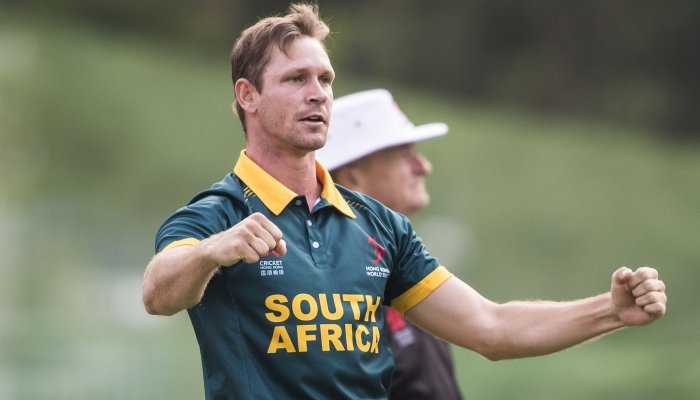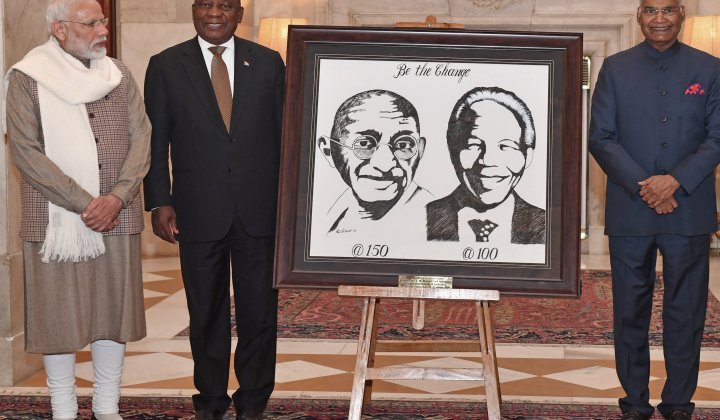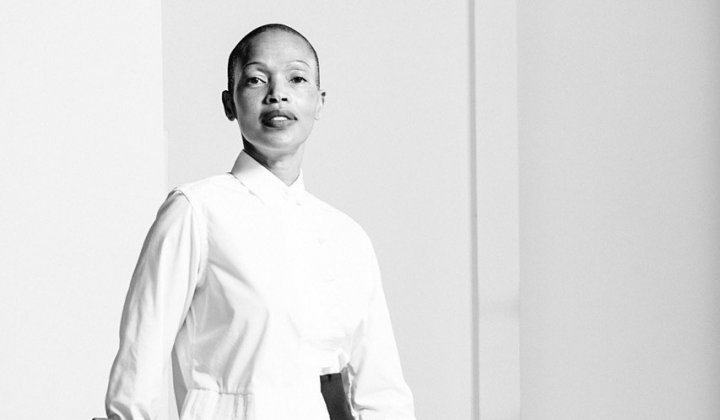South Africa has a very strong sporting culture. Over the last two decades, there has been a solid drive and investment in improving sporting facilities. The country has proven its metal by hosting global sporting events such as the FIFA World Cup, ICC World T20 and IRB Rugby World Cup (amongst many others).
The sector generates revenue through a multi-channel stream which includes broadcasting, sponsorship, athlete management, venue-based sporting events, sports tourism, merchandising and licensing.
A reliable economic vehicle, the sports industry in South Africa is undoubtedly the most lucrative on the continent. Many athletes have built sustainable careers over the years. Most of them gradually transition (after retirement) into technical and management roles within the sector.
2020 - The dreadful year
Alerts of a ‘flu-like but deadlier’ virus spreading globally were headlining the news as early as the fourth quarter of 2019. Pin-pointed in Wuhan, China, Covid-19 grabbed the attention of the world’s leading health organisations when the virus rapidly spread throughout the country.
Despite the hysteria, other parts of the world were carrying on with business as usual, including South Africa. The anticipation was that the virus would be contained in the area in which it had originated.
The year 2020 promised to be action-filled. Various sporting tournaments were in full swing when the year began, and numerous commercial contracts were expected to come to fruition with the start of the sporting calendar.
As the virus began spreading outside China and into numerous European countries, lockdowns became more prevalent, signalling an impending global shutdown, not only of sporting activities but also everyday movement. African countries eventually implemented lockdowns as a protective measure across the continent.
Mike Makaab, CEO of Prosport International, a 360-degree sports management and events company, is perfectly positioned to survey the impact of Covid-19 on the business of sports.
“The pandemic resulted in a major disruption to all sporting activities globally, with a negative impact on the lives of most, if not all, of its stakeholders. The ripple effect of the cessation of live sport reached almost every corner of the globe,” says Makaab.
No gatherings meant no sporting events
“Participants in team sport were forced to train online individually, administrators had to work remotely, and broadcast deals were severely disrupted with the direct spin-off adversely affecting major sponsorship deals,” adds Makaab.
Proteas’ Test Team (and Dolphins) batsman, Sarel Erwee, was looking forward to the promise of 2020. This was disrupted by the implementation of the national state of disaster.
“Firstly, the Dolphins missed out on the Momentum One Day Cup Semi-final and Final. These would have taken place at Kingsmead. The rest of the season came to an abrupt stop,” says Erwee, adding, “I also had plans to travel to the UK to play club cricket for Weybridge Cricket Club in London.”
Western Province (and Stormers) flanker, Nama Xaba, is a passionate rugby player. Structure is important to him. The pandemic stole his daily flow when the first nationwide lockdown was implemented.
“I am an individual who prefers planning and executing. When the lockdown began, I felt that aspect of my life had vanished. I had to focus on the present,” says Xaba. “I had to adjust my goals and plans. The biggest impact in the case of South Africa was how the lockdown highlighted the inequalities and societal issues facing our society.”
According to David Sidenberg, founder and executive director of BMI Sport, the shutting down of sporting activities was felt in every part that makes up the whole industry. Broadcasters were left with no events to broadcast. Sporting event ticketing facilities had no events to help fill up the till. Venues lost event bookings.
Fears are mounting, suggesting that the real impact of the virus might be more severe than initially suspected. For example, the footballing event popularly known as the Soweto Derby loses around R15 million per match played without ticket sales. This figure does not include on-premises purchases of food, drinks, regalia, etc.
A multi-faceted economic impact
The sporting experience is highly monetised, going beyond buying tickets to enter a venue. Sports supporters are conditioned to attach a spending pattern to their participation in the sporting event.
Sidenberg believes our federations were initially in a more fortunate situation than many of their international counterparts as the loss of match-day revenue here is relatively minimal.
While broadcast and sponsorship are not surprisingly the biggest sources of revenue worldwide, match-day ticketing and hospitality as well as merchandising and licensing contribute 30-40% in major markets. By comparison in South Africa, broadcast and sponsorship revenues (particularly for the big three codes) are often responsible for more than 85% of income.
“In May 2020, Two Circles, an international sports marketing agency, updated its prognosis on the economic impact of Covid-19, predicting that the revenue generated by the sports industry will fall by around 40% year-on-year versus their initial 5% growth projected before the pandemic,” says Sidenberg.
“The knock-on effect on the wider industry, including production, experiential and creative services companies, is huge. Freelancers and smaller businesses are faced with significant financial pressures when there is a cancellation of major events,” he adds.
Makaab has observed the impact brought about by the restrictions imposed during the early phase of the pandemic. Citing the financial drain experienced by most of the industry's major stakeholders, he states that it was a numbing experience to see many athletes having to brave through those periods of uncertainty.
Slow return to normal
The introduction of lockdown level 2 in August 2020 meant that sporting activities could resume under strict adherence to regulations. Sporting events were permitted to continue without spectators at the venue. This offered a slight relief for stakeholders who had devised alternative models of servicing this industry.
Despite the December holiday season’s return to lockdown level 3 restrictions as a result of a second wave of the virus, sports events have been allowed to continue under regulated and safe conditions.
“We're very fortunate as sportsmen to be able to have a profession that brings joy to people. I think for people to have live sport and something to look forward to again in the midst of a lockdown helps ease their burdens,” says Xaba, adding, “It's a different atmosphere to play with no supporters. As a youngster in the team, I am really grateful to play after a long wait.”
Sidenberg admits that the pandemic has forced the industry to revise processes which had been in place for decades. He believes that the new circumstances present new opportunities for various stakeholders while keeping others vulnerable.
The absence of spectators at sporting venues is a temporary challenge that presents new and potentially long-term opportunities. Broadcasters and digital enthusiasts have equal responsibility for bridging the divide between the entertainment and the viewers.
“This situation will create a buyers’ market for sponsorship rights. There will be huge value in the market for brands brave enough to commit budget rather than wait until a return to normality,” says the BMI Sport founder. “Given the disruption in the market, the opportunities for savvy and challenger-type entrants has perhaps never been better.”
Across multiple industries, there has been a surge in the e-commerce and digital aspect of many businesses. Similarly, according to Sidenberg, this is the perfect opportunity for e-sports to take up new space while offering marketing specialists a new direction for brand and spectator engagement.
The balancing act
Makaab is optimistic but remains vigilant about where the industry is headed. He acknowledges that the industry needs a bootstrapped strategy to absorb the impact of the current situation.
“The sports fan has undoubtedly developed an insatiable appetite for live broadcast content. This is evident in the sky-rocketing viewership figures in most sports worldwide,” he says. “Revenue streams are bound to improve, with the financial benefit filtering down the chain. From a practical perspective, it is not easy for professional athletes to play without a crowd at the stadiums.”
For the athletes, despite most facing salary cuts, the new trajectory is an opportunity for them to showcase their talents again. Amid the uncertainty, most sports stakeholders had diverse reactions to the new order of the day.
Erwee feels that mental health programmes should be prioritised in sports structures. The batsman believes it is vital to equip athletes with better coping mechanisms to face the demands of similar pandemics in the future.
“Covid-19 had a major impact on the world’s health, educational, financial and commercial institutions. The sports industry is no different,” he says. “Athletes should reach out to mental health coaches, find different hobbies and maybe also start studying to prepare for life after sport.”
One of Sidenberg’s concerns about the impact of the pandemic and the resurgence of a second wave is that it stands to undermine the strides and progress made in building women’s sports.
He had observed a positive and unique trend that was emerging in 2019. Affirming years of hard work that led to that level of progress, he points out that, if not monitored, the severity of this pandemic could wipe out an entire generation of achievements.
“Globally, there are some worrying signs that women’s sports events are being cast aside. This is due to an increasingly congested sports calendar with organisers being forced to recuperate as much revenue as possible. Prioritising men’s competitions, which are generally more lucrative, is a natural consequence,” says Sidenberg.
“To avert this will require strong leadership and government support. We have a unique opportunity to review, rethink and, where required, restructure everything. We are at a point of almost forced collaboration.”









